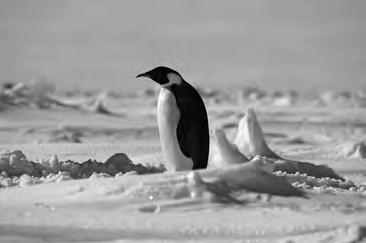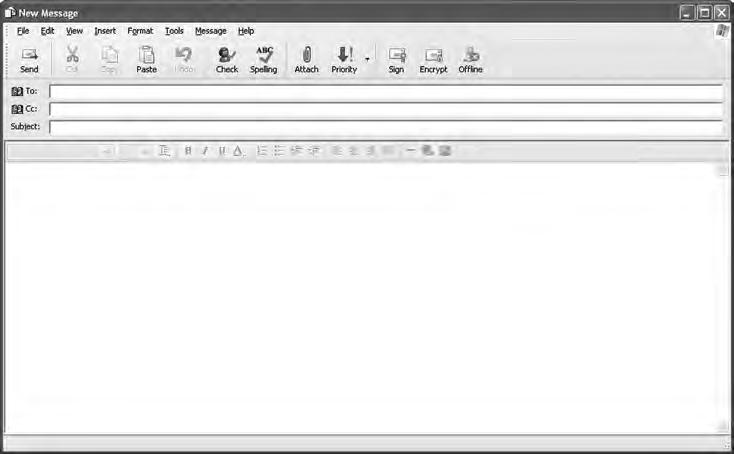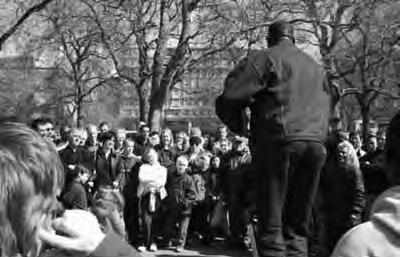
10 minute read
GENERAL REVISION 2 4
from Engleski 1
Рецензенти Рецензенти др БОРИС ХЛЕБЕЦ, редовни професор Филолошког факултета у Београду др БОРИС ХЛЕБЕЦ, редовни професор Филолошког факултета у Београду АНА ТОМОВИЋ, лектор на Катедри за англистику Филолошког факултета у Београду АНА ТОМОВИЋ, лектор на Катедри за англистику Филолошког факултета у Београду мр ДУШИЦА БЛАЖИЋ, координатор за енглески језик Друштва за стране језике и књижевности Србије мр ДУШИЦА БЛАЖИЋ, координатор за енглески језик Друштва за стране језике и књижевности Србије ИВАНА БРКОВИЋ, професор у Првој београдској гимназији у Београду ИВАНА БРКОВИЋ, професор у Првој београдској гимназији у Београду
Лектор за енглески језик Лектор за енглески језик Jonathan Pendlebury, лектор на Филолошком факултету у Београду Jonathan Pendlebury, лектор на Филолошком факултету у Београду
Advertisement
Уредник Уредник СЛОБОДАНКА РУЖИЧИЋ СЛОБОДАНКА РУЖИЧИЋ
Одговорни уредник Одговорни уредник ТАТЈАНА КОСТИЋ др ТАТЈАНА КОСТИЋ
Главни уредник Главни уредник др МИЛОРАД МАРЈАНОВИЋ др МИЛОРАД МАРЈАНОВИЋ
За издавача За издавача др МИЛОРАД МАРЈАНОВИЋ, в.д. директорадр МИЛОРАД МАРЈАНОВИЋ, в. д. директора
Министар просвете, науке и технолошког развоја Републике Србије, решењем број 650-02-418/2018-03 од 7. фебруара 2019. године, одобрио је овај уџбеник за издавање и употребу у првом разреду средње школе. Министар просвете, науке и технолошког развоја Републике Србије, решењем број 650-02-418/2018-03 од 7. фебруара 2019. године, одобрио је овај уџбеник за издавање и употребу у првом разреду средње школе.
CIP - Каталогизација у публикацији Народна библиотека Србије, Београд
37.016:811.111(075.3)(076)
КОВАЧЕВИЋ, Катарина, 1942-
Improving English 1 : енглески језик за први разред гимназијe и средњих стручних школа : девета година учења : workbook = радна свеска / Катарина Ковачевић, Гордана Марковић ; [илустрације Душан Лакићевић]. - 3. изд. - Београд : Завод за уџбенике, 200 (Нови Сад : Сајнос). - 68 стр. : илустр. ; 27 cm Тираж 4.500. ISBN 978-86-17-20185-0 1. Марковић, Гордана, 1951- [аутор] COBISS.SR-ID 283684364
ISBN 978-86-17-20184-3 ISBN 978-86-17-20185-0 © Завод за уџбенике, Београд (2015-2020) © Завод за уџбенике, Београд (2015-2020) Ово дело не сме се умножавати, фотокопирати и на било који други начин репродуковати, Ово дело не сме се умножавати, фотокопирати и на било који други начин репродуковати, ни у целини ни у ни у целини ни у деловима, без писменог одобрења издавача. деловима, без писменог одобрења издавача. Cover page: King’s Cross Station, London (Depositphotos) Cover page: King's Cross Station, London (Depositphotos)
CONTENTS
UNIT 1
Great Britain ........................................................................................................................................ 4
UNIT 2
Famous people ............................................................................................................................10
UNIT 3
Threats to Earth ..........................................................................................................................16
GENERAL REVISION 1 .................................................................................................................22
UNIT 4
Good morning, America ..........................................................................................................24
UNIT 5
Traditional festivals ..................................................................................................................30
UNIT 6
Our green planet ........................................................................................................................36
GENERAL REVISION 2 ................................................................................................................42
UNIT 7
The media .....................................................................................................................................44
UNIT 8
The generation gap ....................................................................................................................50
UNIT 9
A friend in need is a friend indeed .........................................................................................56
GENERAL REVISION 3 ................................................................................................................62
UNIT 10
Holiday destinations .................................................................................................................64
GREAT BRITAIN
VOCABULARY
a bc
1 Write down the word to complete the definition. The first letter of the word is given.
1. N _ _ _ _ _ _ _ means a large number. 2. H _ _ _ means extremely large in size. 3. If you e _ _ _ _ _ _ _ _ contact with someone, you start to have contact with them. 4. If two people s _ _ _ _ _ _ _ with each other, they fight. 5. The h _ _ _ _ _ _ _ _ of an event is the most interesting part of it.
2 Suggest a synonym for the following words and use the words to make sentences.
1. common 2. amazing 3. accurate 4. observe 5. illuminate a. _________________________________ b. _________________________________ c. _________________________________ d. _________________________________ e. _________________________________
3 Match the verbs in column A to the words/expressions in column B. Then use the completed phrases to talk about your daily routine. A B
1. brush 2. take 3. make 4. wash 5. eat 6. do 7. watch 8. meet 9. get 10. clean a. the bus b. my hair/face c. my teeth d. my homework e. my bed f. my friends g. TV/a video h. to school i. breakfast/lunch/dinner j. the room E.g. After I wake up, I usually wash my face. _________________________________ _________________________________ _________________________________ _________________________________ _________________________________ _________________________________ _________________________________ _________________________________
PREPOSITIONS Complete the sentences using the correct prepositions ON, AT or IN.
1. 2. 3. 4. 5. He left ______ the evening of June 6th . We have lunch _____about 12.30.
I’ll be ready _____ five minutes. I’m very busy _____the moment. I play tennis _____ the weekend. 6. We’re having a party ____ New Year’s Day. 7. I’ll see you _____the beginning of the week. 8. The exams start _____ Monday. 9. I’m going to Rome ________ Easter. 10. I think I’ll get there____ April 2nd.
WORD FORMATION 1 Dictionary work. Read this dictionary extract and then answer the questions below.
enjoy /In’dJOI/ (v) - If you enjoy something, you find pleasure and satisfaction in doing it or experiencing it. I enjoyed playing cricket. enjoyment (n) - Enjoyment is the feeling of pleasure and satisfaction that you have when you do or experience something that you like. I apologize if your enjoyment of the movie was spoiled. enjoyable /In’dJOI^bl/ (adj) - Something that is enjoyable gives you pleasure. It was much more enjoyable than I had expected. enjoyably (adv) – It was an enjoyably light-hearted film.
a) Circle the parts of the dictionary entries that tell you what part of speech (noun, verb, adjective or adverb) the word is. b) How are nouns, adjectives and adverbs made from verbs?
2 Making adjectives. Complete the sentences with the correct form of the words in capitals.
e.g. It’s no surprise that a lot of people want to live here because the place is so attractive . /ATTRACT
1. The pupils want to suggest some _______________activities. 2. We spent an _______________ evening with her friends. 3. We believe that this disease will soon be __________________. 4. The weather in England can be very ___________________. 5. Christmas dinner is a _______________ meal. 6. I don’t think she is an honest and ______________ person. 7. I think she is _______________ because of her exams. CREATE ENJOY CURE CHANGE TRADITION RELY NERVE
PRESENT TENSES GRAMMAR
1 Write these sentences again, using the word or words in brackets instead of the underlined word/words. Make any necessary changes to the sentences.
E.g. He is watching TV now. (often) - He often watches TV.
1. He is writing poems at the moment. (sometimes) ________________________________________ 2. We’re taking an expedition to the North Pole this winter. (every year) _______________________ _______________________________________________________________________________ 3. We eat fish every week. (at the moment) ______________________________________________ 4. Is she making her bed now? (always) ________________________________________________ 5. My sister goes to the seaside in summer. (tomorrow morning) _______________________________________________________________________________
2 In three of the sentences there is a verb in the wrong tense. Underline each mistake and write the correction.
E.g. My brother lives with us until he can find a flat of his own. is living_
1. I’m not having enough money for a long holiday this year. 2. Everyone needs a break from work sometimes. 3. I must lose weight — I’m weighing over 80 kilos. 4. Maria is going to the shops every Saturday morning. 5. What period of history are you studying this term?
3 Write five sentences about yourself. Each time you should use one of the words /expressions in the box below.
two or three times a month, quite frequently, very often, hardly ever, as often as I can, at the moment, occasionally, once a week, these days ________________________________________________________________________________ ________________________________________________________________________________ ________________________________________________________________________________ ________________________________________________________________________________ ________________________________________________________________________________
4 Complete the questions in the dialogue using either the present simple or the present continuous.
Anna: Where _____________come from? Andy: I come from a small town in Italy. Anne: Where_________________ at the moment? Andy: I’m living at my aunt’s.
Anna: Which school ______________ to? Andy: I go to a comprehensive school. Anna: How often ____________________ the Internet? Andy: I use the Internet every day. Anna: Who _________________________ now? Andy: I’m writing to my brother.
TIME CLAUSES 1 Join a phrase in A with a conjunction in B and a phrase in C to make five sentences. You should use one conjunction twice. A
I’ll call you … I’ll buy a new car… We must stay here … We must leave the place … You will recognize him …
B
before when until as soon as C
… he gets back. … I win the lottery. … you see him. … the programme finishes. … I come back from school.
2 Finish these sentences any way you like using the words in box B.
1. I don’t use the Internet ________________________________. 2. She won’t come home_________________________________. 3. She will be surprised __________________________________. 4. Please let me know____________________________________.
Track 3 LISTENING and GAP FILLING Listen to the text Important events and complete it with the adjectives below.
annual fabulous famous vast ordinary delicious sporting leading
England is ______________(1) for festivals, particularly its music festivals which take place during the summer and attract some of the best dance and rock actsin the world as well as a _______________ (2) amount of British performers. Glastonbury Festival at the end of June is England’s most famous music event. It takes place at Worthy Farm in Somerset and attracts a crowd of around 100,000.
The Notting Hill Carnival is an ___________ (3) event which starts on the fourth Sunday of August and is one of the biggest street festivals in Europe. It is led by members of the Caribbean population, many of whom have lived in the area since the 1950s. Around a million people come for the ______________ (4) Caribbean music and ______________ (5) food.
The London Marathon in April is an important ______________ (6) event. It attracts some of the world’s _____________ (7) athletes as well as lots of ______________ (8) people running for a good cause.
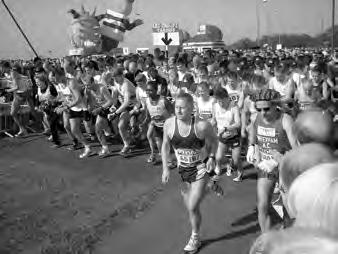
CONJUNCTIONS
The most commonly used conjunction pairs are both ... and, either ... or and neither ... nor. In the table below, each pair of correlative conjunctions is accompanied by an example of its use.
both ... and
either ... or
neither ... nor
rather ... than
whether ... or
He is both intelligent and good-natured.
I will either buy a blue dress or a red sweater.
He is neither rich nor famous.
I would rather stay here than go for a walk.
Have you decided whether you will come or not?
Paying attention to the expressions used in the previous sentences, fill in the blanks with the words and, nor, or, and than as appropriate.
For example: We should either walk quickly ______ take the bus. We should either walk quickly or take the bus.
1. I have both respect _________ admiration for them. 2. It will get colder either today _________ tomorrow. 3. He could not decide whether to tell the truth _________ keep silent. 4. He is neither arrogant _________ mean. 5. I would rather wait here _________ risk missing the bus. 6. She could find the book neither at the library _________ at the bookstore.
EVERYDAY LANGUAGE
SOCIAL EXCHANGES
What would you say in the following situations?
1. You are introduced to a stranger, so you say ___________________________________________. 2. You’re late for an appointment, so you say ____________________________________________. 3. You’re refusing food that is offered, so you say ________________________________________. 4. You fail to hear what someone says to you, so you say ___________________________________. 5. You have accidentally pushed someone on the street, so you say ___________________________.
EXPAND YOUR VOCABULARY 1. Match the expressions with ‘EYE’ in box A with their explanations in box B. 2. Use these expressions in three sentences to show their meaning.
A B
1. keep an eye on 2. be all eyes 3. open a person’s eye to something 4. up to one’s eyes in debt/work 5. close one’s eyes to 6. have an eye for
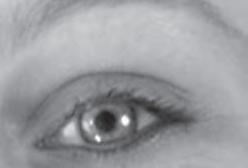
– refuse to see – be very anxious to see – deep in something – have a taste for something – watch carefully – bring it to somebody’s attention
Track 4 PRONUNCIATION 1 The verbs in the box are in the present simple tense, third person singular. Listen to them and complete the chart below according to the pronunciation of the letter ‘s’.
collects hopes dresses brushes spends promises works critisizes pronounces judges travels holds brings watches repeats feels frightens
/s/ /z/ /iz/
MY JOURNAL
Write notes about your average school day. Mention the subjects you have in a week/what you do after school/in the evening, etc. ________________________________________________________________________________ ________________________________________________________________________________ ________________________________________________________________________________ ________________________________________________________________________________ ________________________________________________________________________________
DISCUSSING A PROVERB Explain the meaning of the following saying in your own words.
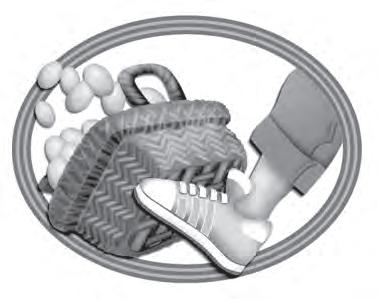
Don’t put all your eggs in one basket.



